Marsh Management Plan
Importance of Protecting the Marsh Today
About 55 percent of Kiawah Island is marshland and water surrounded by the marshland. The marsh supports critical ecosystems that serve both human and wildlife communities; and serves as an important protective barrier for the island as it relates to significant storms, flooding, etc. Stewarding our island's marshes today can further assist the flooding and erosion impacts on the island in the future and continue to provide abundant wildlife and picturesque scenery for years to come.

The Launch of the Marsh Management Plan
In April 2022, the Town of Kiawah Planning Department launched the development of a Comprehensive Marsh Management Plan to explore ways to protect the island's marsh. This is the first document for the Town focused solely on the marsh and its management.. Biohabitats and Elko Coastal Consulting were hired to assist the Town in developing the plan. The plan was developed during 2022 and was adopted by Town Council on February 7, 2023. This document is envisioned to be a living document that is revisited every five years to reassess the effectiveness of implemented recommendations and adapt as needed for improved management.
Read the Executive Summary and the Full Plan here:
Comprehensive Marsh Management Plan Executive Summary
Comprehensive Marsh Management Plan Final
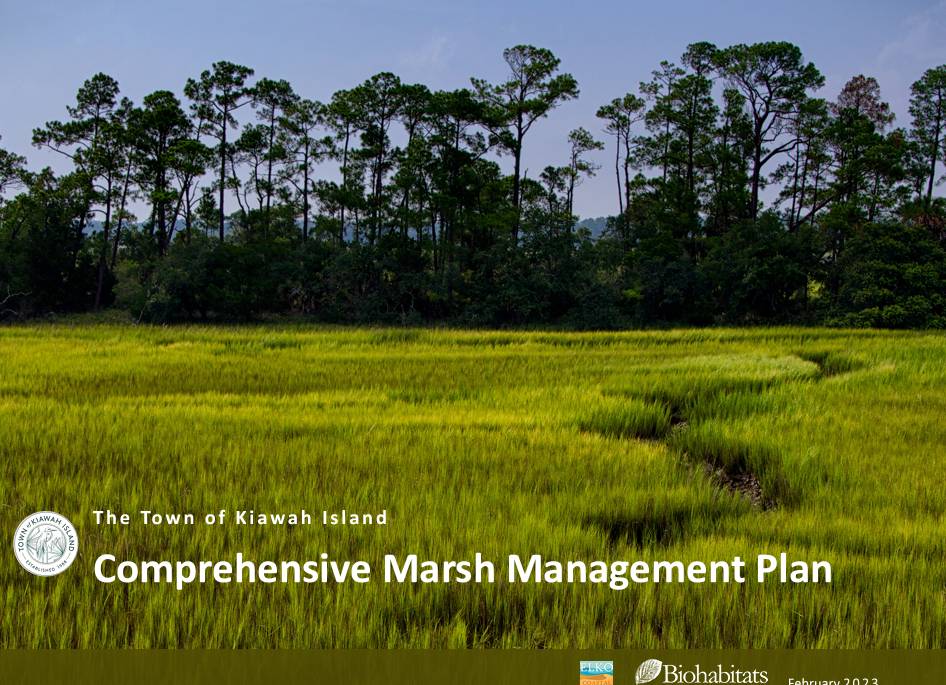
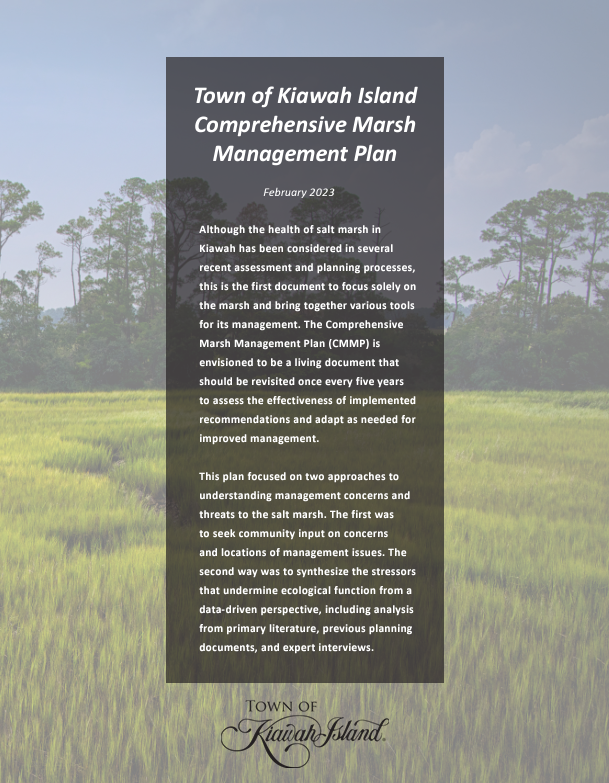
Community Involvement
In July 2022, community members, outside experts, and Kiawah staff and officials joined a Planning Charette, which was a lively day of unencumbered idea-sharing and innovative options for the Marsh Management Plan. You can see some of this work through the Story Map. This tool evolved with the plan serving as both an engagement tool, and a visual representation of the Marsh Management Plan.
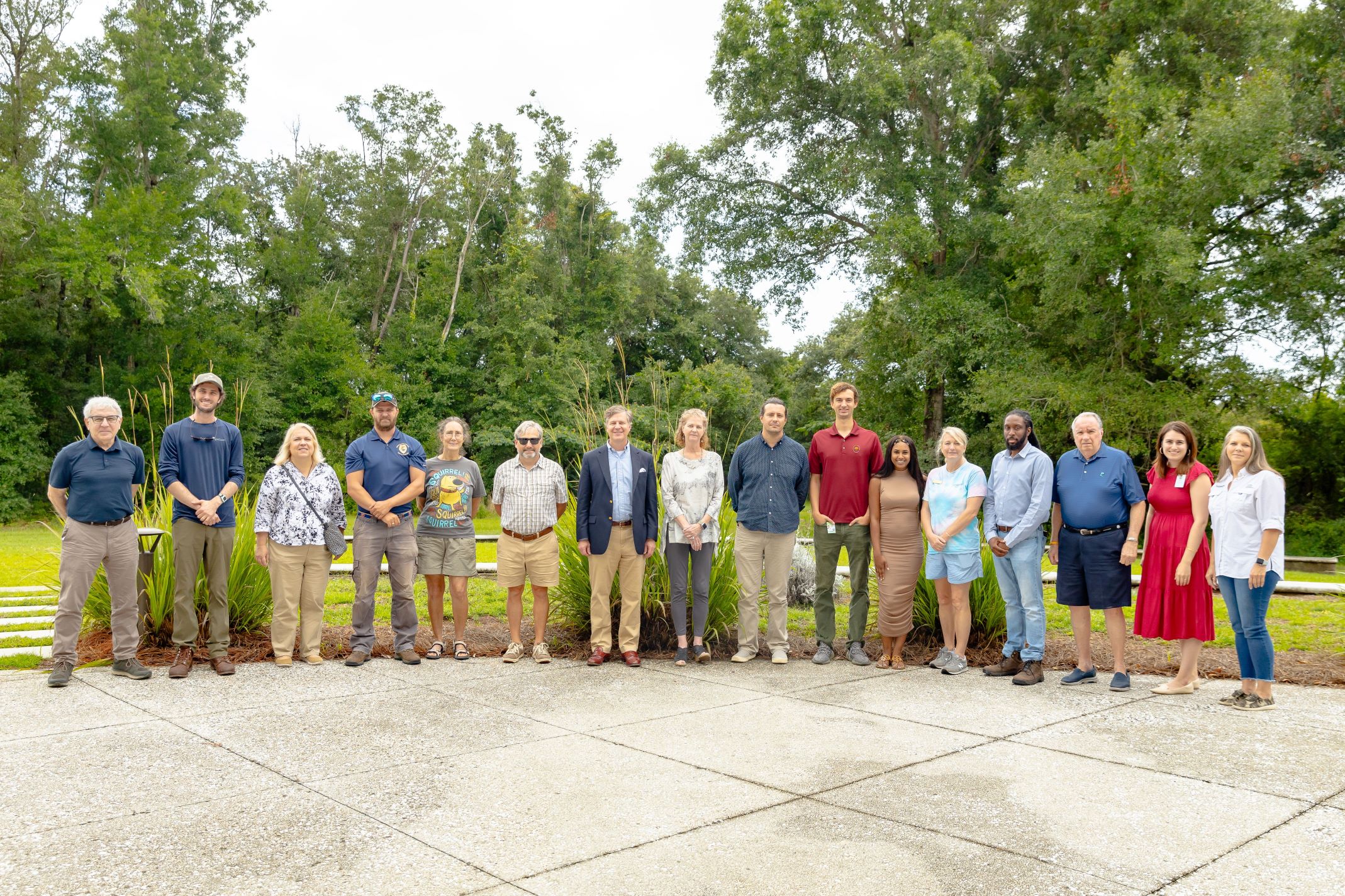 Marsh Management Work Group
Marsh Management Work Group
To further implement the Town's Comprehensive Marsh Management Plan, the Marsh Management Work Group was formed in March 2023.
This is a collaborative group, formed with many Kiawah Island entities: Town of Kiawah Island; Kiawah Island Community Association; Kiawah Island Golf Resort; Kiawah Conservancy; Kiawah Architectural Review Board; Kiawah Partners; Charleston County Parks and Recreation; and community members. The group is working on proactive approaches to address concerns with the marsh and to inform Kiawah Island on these actions. Currently, there are three subcommittees of this work group, which include Communications, Pervious Surfaces, and the Kiawah Island Bridge.
Resources from the Marsh Management Work Group Efforts
Watch the Town's podcast to get an overview of marsh management on the island, the efforts of the work group, and how this management is continuing to protect this valuable ecosystem. Click here to view.
Read the Kiawah Island Community Association's article on how the Oceanwoods neighbors joined together to replace 60 driveways with pervious surfaces! Click here to view the article.
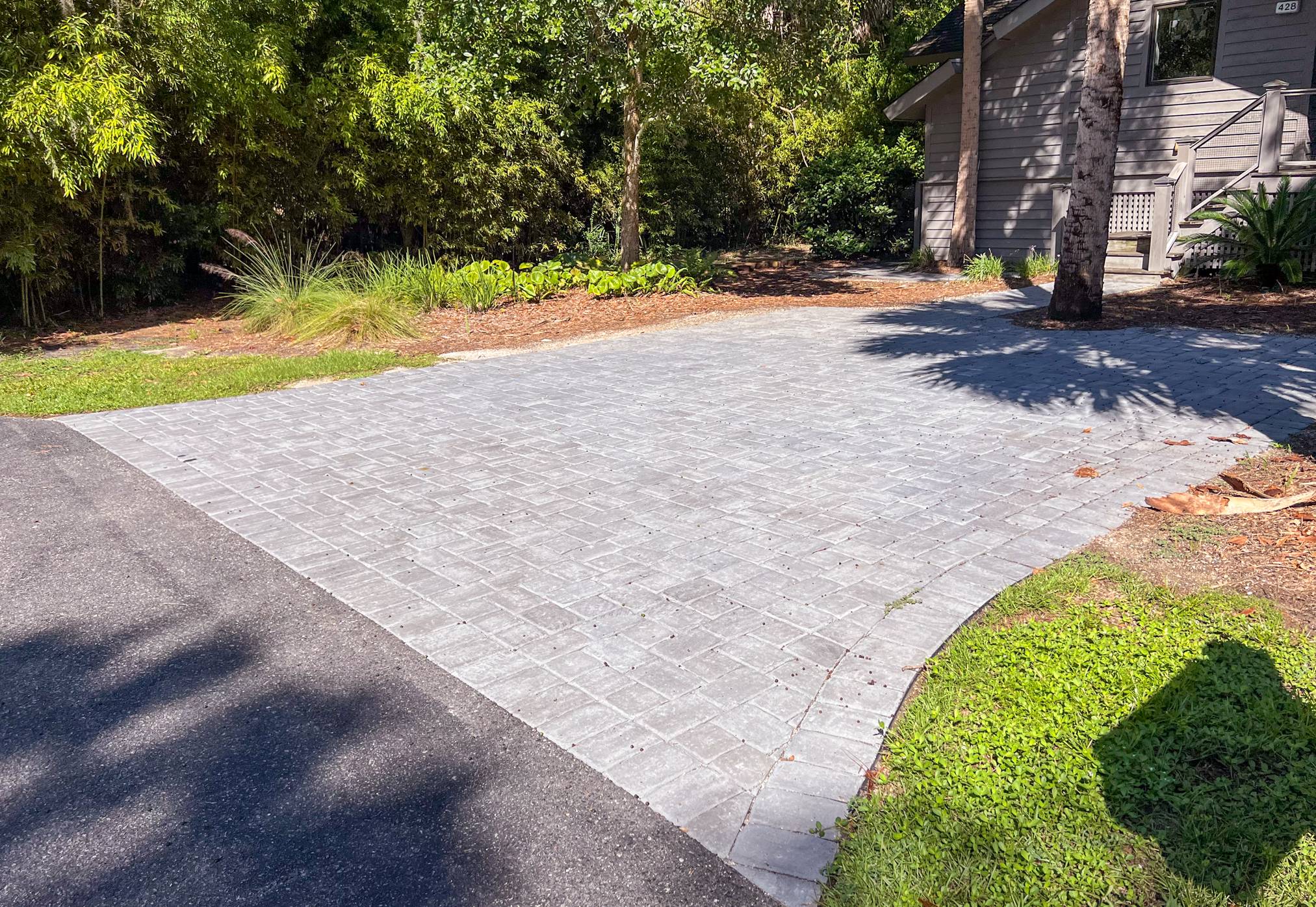
Other Ways that Island Entities Support the Marsh
In 2023, Town Council approved the funding for the Town's first rain garden. Installing rain gardens in the landscape are one way to combat stormwater runoff from impervious surfaces. Stormwater runoff is detrimental to the island's marshes. Rain gardens can assist by promoting stormwater infiltration into the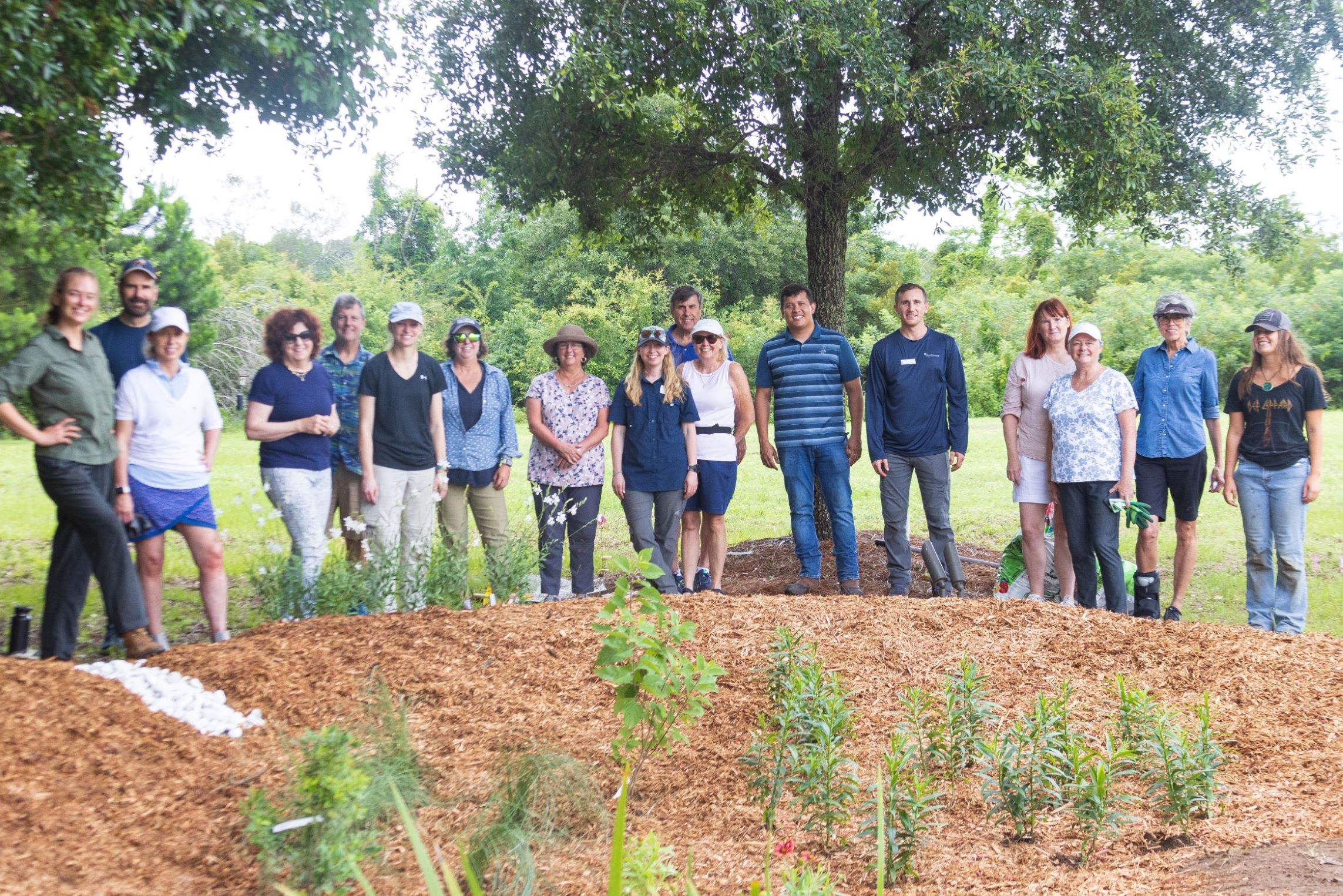 ground, instead of collecting low-lying areas, ponds, and other bodies of water. They also help the environment by removing pollutants and providing habitat for wildlife through the use of native plants in their design.
ground, instead of collecting low-lying areas, ponds, and other bodies of water. They also help the environment by removing pollutants and providing habitat for wildlife through the use of native plants in their design.
On June 23, 2023, the Kiawah Conservancy hosted a rain garden workshop with Clemson Extension and Weston + Sampson Engineers to build the Town's first rain garden and inform participants about rain garden benefits. For more information about rain gardens, you can read the Conservancy's Nature-Based Solutions Manual for Kiawah Island or visit Clemson Extension's Carolina Rain Garden Initiative website. Photo credit: Kiawah Conservancy
Additional Resources
Learn general information about South Carolina's salt marsh ecosystem:
About 55 percent of Kiawah Island is marshland and water surrounded by the marshland. The marsh supports critical ecosystems that serve both human and wildlife communities; and serves as an important protective barrier for the island as it relates to significant storms, flooding, etc. Stewarding our island's marshes today can further assist the flooding and erosion impacts on the island in the future and continue to provide abundant wildlife and picturesque scenery for years to come.

The Launch of the Marsh Management Plan
In April 2022, the Town of Kiawah Planning Department launched the development of a Comprehensive Marsh Management Plan to explore ways to protect the island's marsh. This is the first document for the Town focused solely on the marsh and its management.. Biohabitats and Elko Coastal Consulting were hired to assist the Town in developing the plan. The plan was developed during 2022 and was adopted by Town Council on February 7, 2023. This document is envisioned to be a living document that is revisited every five years to reassess the effectiveness of implemented recommendations and adapt as needed for improved management.
Read the Executive Summary and the Full Plan here:
Comprehensive Marsh Management Plan Executive Summary
Comprehensive Marsh Management Plan Final


Community Involvement
In July 2022, community members, outside experts, and Kiawah staff and officials joined a Planning Charette, which was a lively day of unencumbered idea-sharing and innovative options for the Marsh Management Plan. You can see some of this work through the Story Map. This tool evolved with the plan serving as both an engagement tool, and a visual representation of the Marsh Management Plan.
 Marsh Management Work Group
Marsh Management Work GroupTo further implement the Town's Comprehensive Marsh Management Plan, the Marsh Management Work Group was formed in March 2023.
This is a collaborative group, formed with many Kiawah Island entities: Town of Kiawah Island; Kiawah Island Community Association; Kiawah Island Golf Resort; Kiawah Conservancy; Kiawah Architectural Review Board; Kiawah Partners; Charleston County Parks and Recreation; and community members. The group is working on proactive approaches to address concerns with the marsh and to inform Kiawah Island on these actions. Currently, there are three subcommittees of this work group, which include Communications, Pervious Surfaces, and the Kiawah Island Bridge.
Resources from the Marsh Management Work Group Efforts
Watch the Town's podcast to get an overview of marsh management on the island, the efforts of the work group, and how this management is continuing to protect this valuable ecosystem. Click here to view.
Read the Kiawah Island Community Association's article on how the Oceanwoods neighbors joined together to replace 60 driveways with pervious surfaces! Click here to view the article.

Other Ways that Island Entities Support the Marsh
In 2023, Town Council approved the funding for the Town's first rain garden. Installing rain gardens in the landscape are one way to combat stormwater runoff from impervious surfaces. Stormwater runoff is detrimental to the island's marshes. Rain gardens can assist by promoting stormwater infiltration into the
 ground, instead of collecting low-lying areas, ponds, and other bodies of water. They also help the environment by removing pollutants and providing habitat for wildlife through the use of native plants in their design.
ground, instead of collecting low-lying areas, ponds, and other bodies of water. They also help the environment by removing pollutants and providing habitat for wildlife through the use of native plants in their design. On June 23, 2023, the Kiawah Conservancy hosted a rain garden workshop with Clemson Extension and Weston + Sampson Engineers to build the Town's first rain garden and inform participants about rain garden benefits. For more information about rain gardens, you can read the Conservancy's Nature-Based Solutions Manual for Kiawah Island or visit Clemson Extension's Carolina Rain Garden Initiative website. Photo credit: Kiawah Conservancy
Additional Resources
Learn general information about South Carolina's salt marsh ecosystem:
- Take a free Salt Marsh Short Course! This course is funded by NOAA and developed by Clemson Extension, SCDNR and SC Sea Grant. It will provide a better understanding of South Carolina’s salt marsh ecosystem. Registration is required. Once a person registers, they have 45 days to complete the four distinct modules (Ecosystem Services, Threats to the Salt Marsh, Flora and Fauna Highlights, and Stewardship). The course is asynchronous and should take two to four hours total to complete. Enroll Now
- Read Clemson Extension Home and Garden Information Center's fact sheets:
- Visit Clemson Extension's website, funded by SCDHEC and built by multiple partners, to learn the basics of living shoreline benefits, installation techniques, and site assessment, and also describes case studies. Visit the website here.
- Take Clemson Extensions hybrid trainings:
- Consider taking Master Rain Gardener, Master Pond Manager, and Post Construction BMP Inspector Courses. Each course teaches in-depth information with a focus on the design, maintenance, and inspection of individual practices and BMPs ranging from rain gardens, rainwater harvesting, stormwater ponds, permeable pavement, green roofs, bioretention, dry detention, etc.
- Consider taking Clemson Extension's Carolina Clear and Carolina Yards programs provide information on how to reduce pollution in stormwater runoff (including bacteria management) and how to engage in environmentally responsible landscaping practices. For example, the Carolina Yards plant database is a searchable database based on site conditions that can help with the selection of the right plant for the right place, reducing the need for irrigation, fertilizer, and other inputs.
- If you are a contractor, there is a hybrid-format course (online classroom and field-based training) funded by SCDHEC and developed by SCDNR and Clemson Extension that you can take. You will receive a Letter of Completion Track at the conclusion of the training. There is also a track for residents. Email kcounts@clemson.edu to be notified when this course becomes available.

 Facebook link
Facebook link
 Twitter link
Twitter link
 Instagram link
Instagram link
 YouTube link
YouTube link
